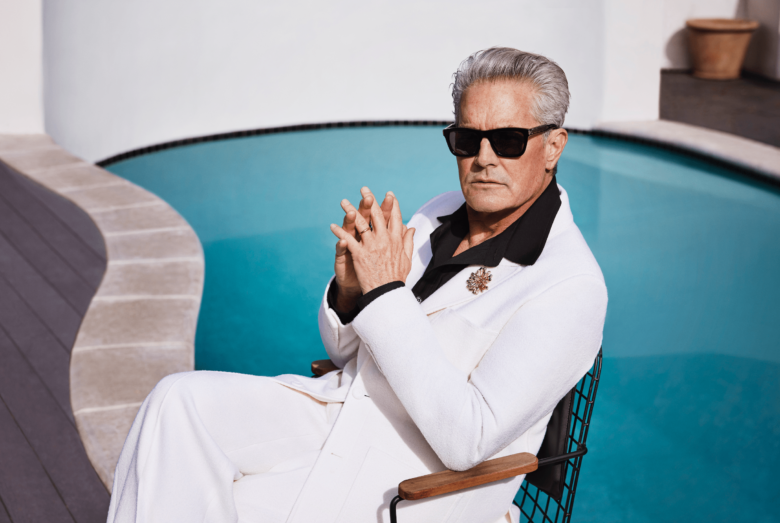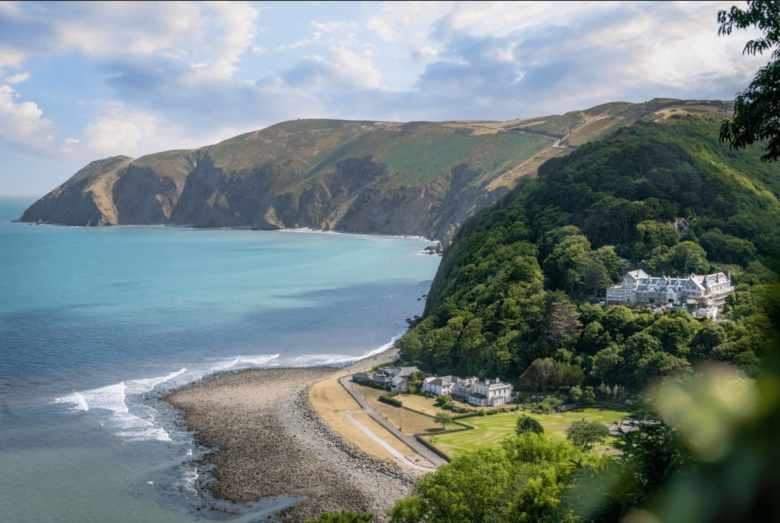Chase and Status on rave culture, ’90s nostalgia and the future of London nightlife
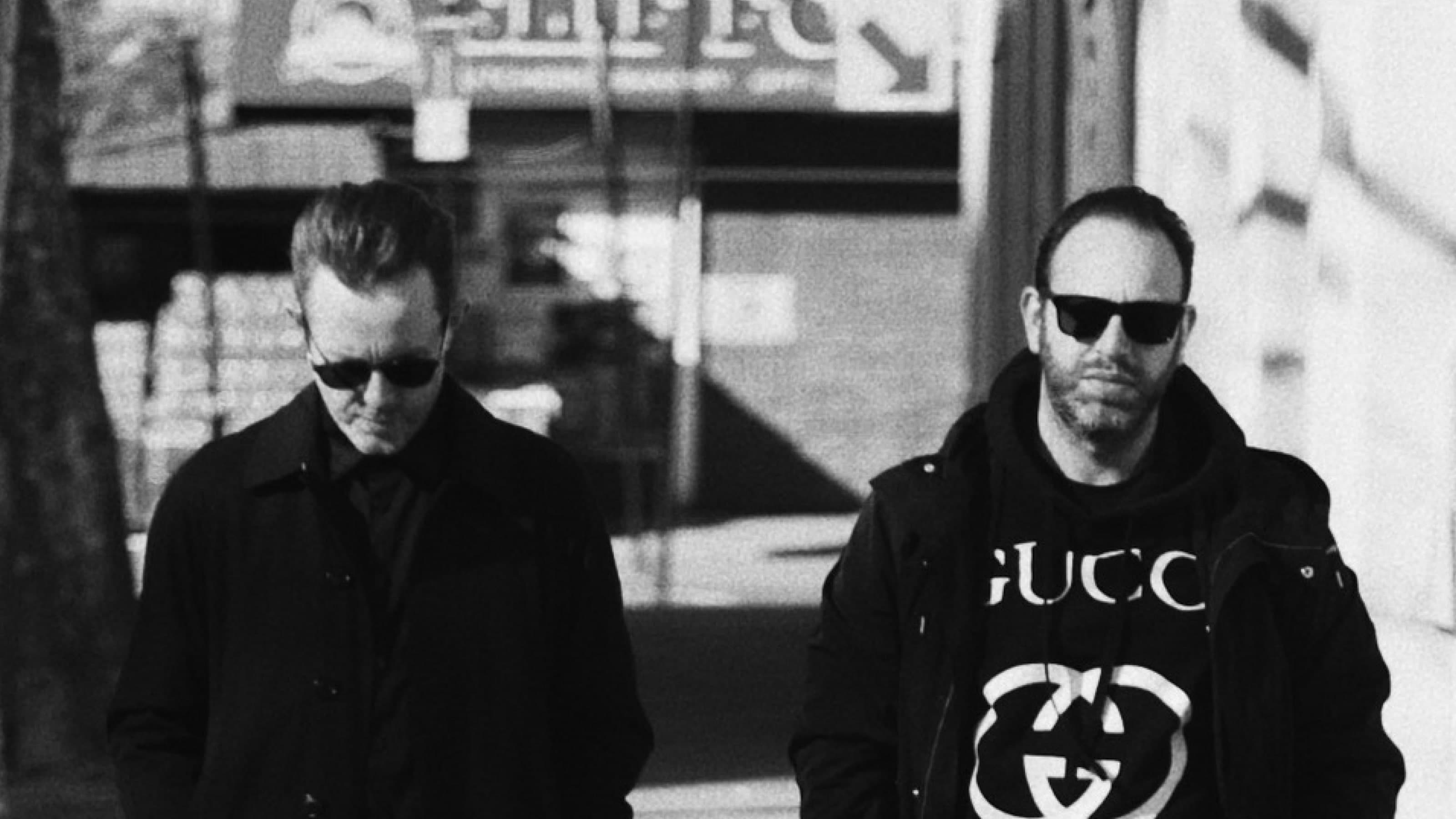
“To be pernickety, we actually formed in 2000,” says Saul Milton, one half of legendary drum and bass duo, Chase and Status, when we speak of their two decades in the music industry. Saul is sitting in his studio in London, smoking something that I think is a cigarette until he clarifies that it most definitely doesn’t contain nicotine. We’re waiting for his longtime collaborator and friend, Will Kennard. Having met in 1997, they started releasing music in 2003 under Chase and Status after falling head over heels in love with the capital’s rave and dance scene in the 90s — an era they are adamant has produced some of the best music Britain has ever seen. “Our journey started in ‘94 when we would have cut off our arms to become DJs,” they tell me. “We’re fortunate enough to have grown up in that era and we’re forever in that mode of nostalgia. We’re basically still stuck in 1998.”
Now, after two years of the Covid-19 pandemic and in the midst of the Y2K revival, Chase and Status have gone back to their roots with their upcoming album, What Came Before. It’s an invigorating homage to the euphoria every clubgoer feels on the dance floor; that universal feeling of escapism, liberation, and catharsis that Saul and Will know so well. Below, HUNGER caught up with the pair about the need for pure, unadulterated hedonism post-lockdown, the ’90s, and the future of club venues in their native London.
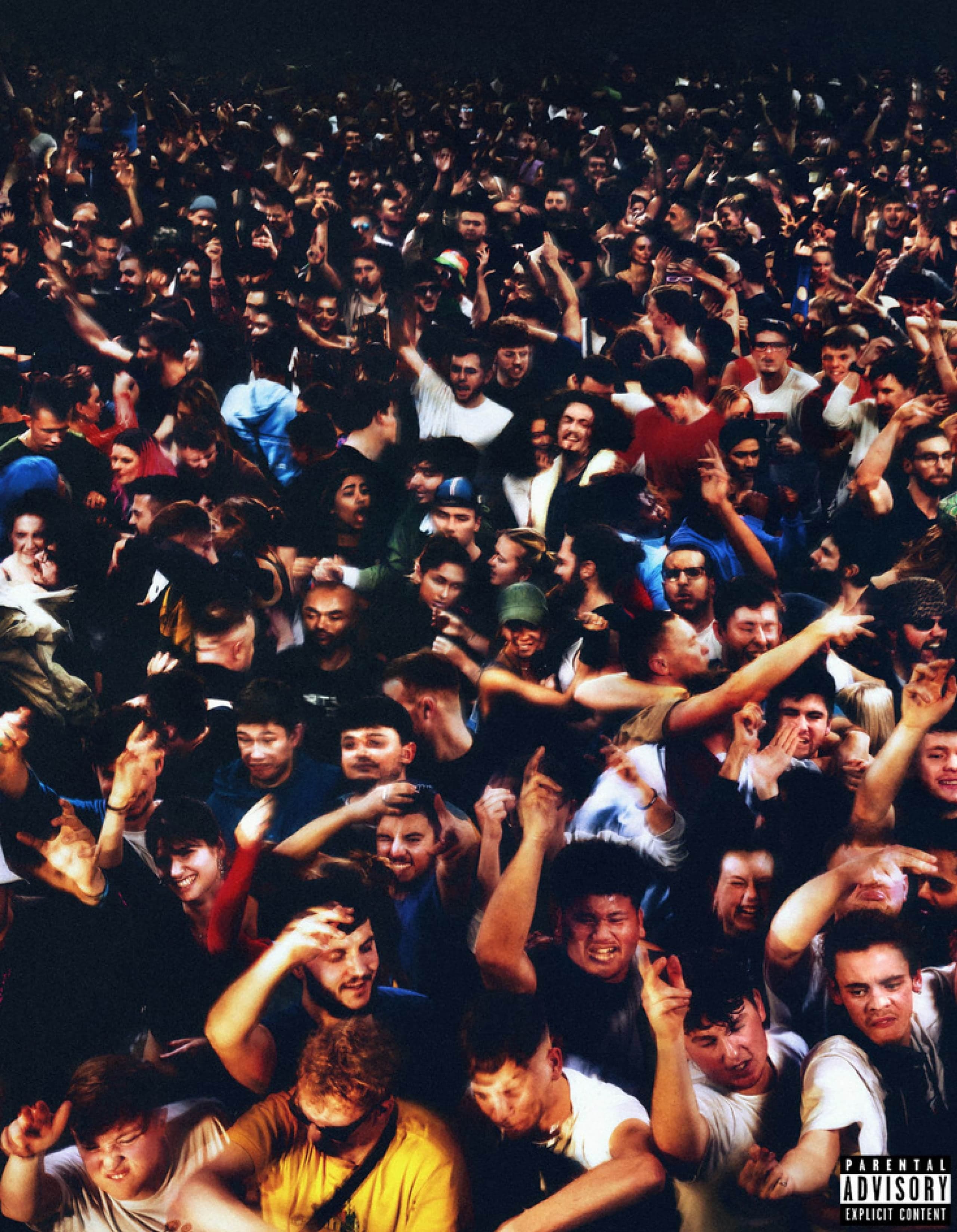
You guys formed all the way back in 2000 so that’s over 20 years in what is a very difficult industry. Is it completely unrecognisable from when you started?
Saul: It’s funny you should ask me that because I was actually thinking yesterday that no, it is very similar in a couple of ways. Sure, today is a different world in terms of accessibility and how instantly things can happen. However, with new genres like drill, which we’re incredibly passionate about, I’ve seen so many similarities, whether it’s the software or plugins they’re using to get that older sound. I’m like fucking hell, you’re using something I haven’t used for like 20 years. Just seeing their vibe and excitement and their approach is so similar to when we were beginning. But what’s incredible now, and I sound like a broken record, but I wish we had the ability at 15-years-old to get a computer and start making beats in our bedrooms. Some of the kids making tunes now weren’t even born when we started releasing and they’re fucking brilliant. It’s a great time for creatives to finally explore that at an early age, and it allows a lot of kids who may have acted out an avenue to release their energy and creativity. I always feel a lot better after making a tune.
Will: Yeah, there are lots of good things. People complain about social media, but that accessibility is amazing, and people from all over the world are able to see what we’re doing. In a way, raving is a much safer place now too. It was pretty edgy when we were growing up, which was part of the appeal. But it wasn’t a summer of love, and not everyone felt entirely welcomed. I feel like that’s changing now and it’s more inclusive. Plus, if you’re a kid now, and you can afford to scrape together the money for a laptop and some free software, you can make music and release it. That’s exciting for any art form, particularly music.
The last two years, of course, were really difficult for musicians with the Covid-19 pandemic. How was it for you guys?
Saul: The first couple of weeks, I was pretty fucked, to be honest, and out of it. However, shortly after that, Will and I actually fell into a massive creative burst. It’s over that period of time that we wrote this album and I feel like it’s one of our better records. We unintentionally had the luxury of time to really live with the songs we were making. It really, if anything, boosted the creativity because for us, staying indoors and making beats is the perfect situation.
During that time, there were also no parties, raves, or dance culture, which is so integral to what you guys do…
Saul: Well, that really speaks volumes with our community, not just the ravers who go out for the nights, but us fucking weirdos who are out there playing music until 4 am because for us, it’s a release, energy-wise and mentally. I feel clogged up and anxious and tense if I don’t DJ. You could see the elation on the first night back out. It was amazing to see how people reacted to our hits, to see how much they meant to them… it was definitely an emotional experience.
The kind of music you play is also so dependent on that sense of community you get from the audience and the relationship you have with them in the here and now. Was that tough?
Will: One of the biggest things we missed, apart from the general sense of happiness we felt from being out and about in the crowd was not having that instant feedback loop. As producers and DJs, you have a chance to test out your tunes and get real, honest, unadulterated feedback from the crowd. Whereas, when you play it to your family and mates, they go yeah, sick, it’s wicked, you know? And then suddenly, you’re in your slippers, in your bedroom studio during the lockdown, making music that’s supposed to resonate with people in a high-energy environment, but you haven’t seen anyone in a long time. It was tough not to have that interaction week in, week out. We’re lucky to have it again, I guess.
Saul: Yeah, you only really understand these songs when you hear them in a club first. It was very strange. Very strange.
How did that time alter your perception of social media — and stuff like filming gigs for Instagram? A lot of artists have come out recently telling their audiences to be in the moment.
Saul: For the launch, we threw a rave in East London to film the cover for the album. We wanted to recreate that feeling we had when we went raving in the 90s and there were no phones. So we had people lock away their phones and you know what man, it really, really added to the vibe. It had that electric feel, it was really special. I would love for that to be commonplace in nightclubs and festivals. But it’s also a different world now where documenting as you go along is normal, like breathing. For me, it’s the most uncomfortable, peculiar feeling, but for them, it’s not.
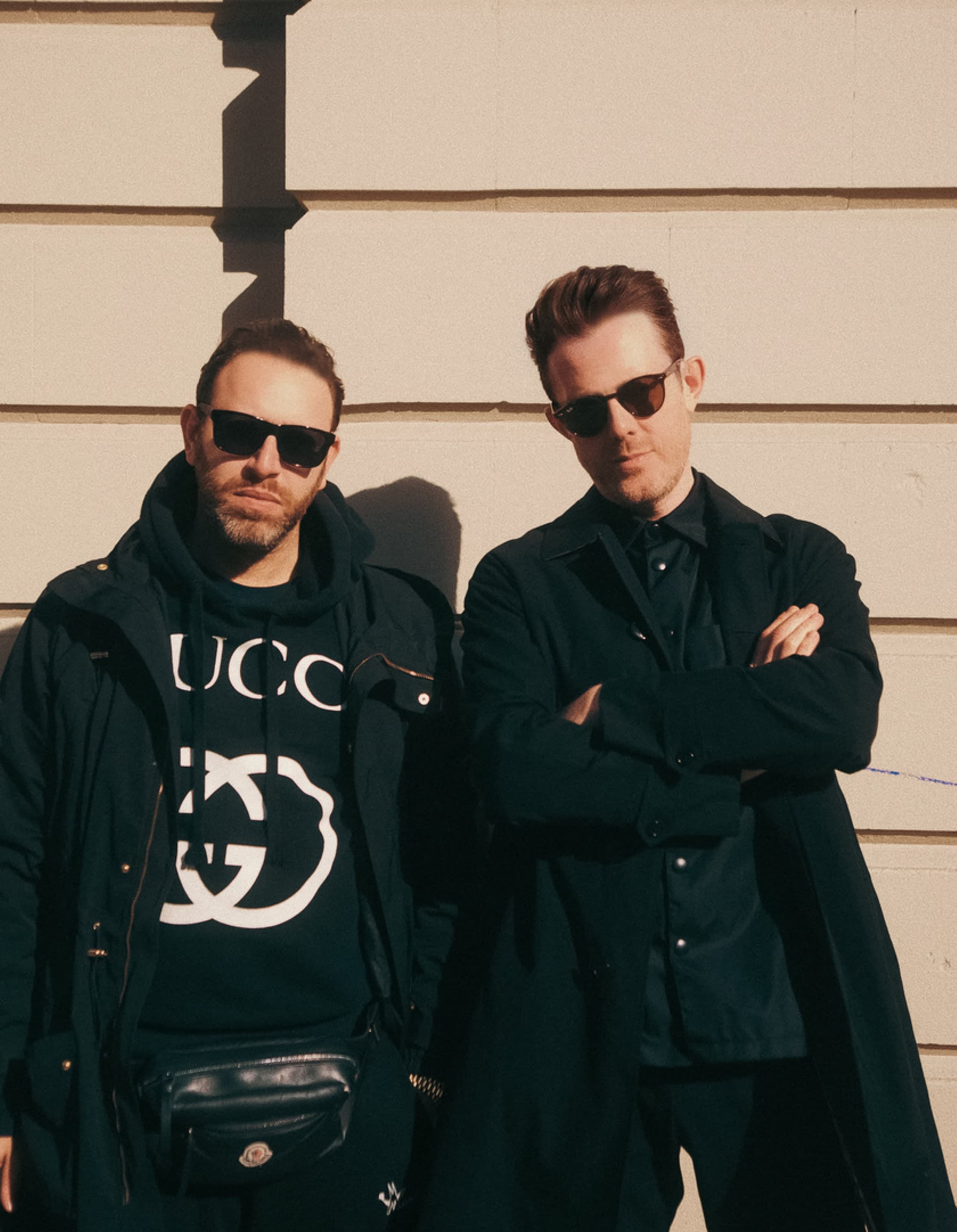
You’ve been immersed in rave culture for so long — I think I know the answer to this but what’s been your favourite era and why?
Saul: I think we’ve answered that question throughout our entire career, and especially with this album, but we’re basically in love with the 90s. Our journey started in ‘94, and we would have cut our arms off to become DJs, which wouldn’t have made much sense, but you know. We are forever in that mode of nostalgia. We’re fortunate enough to have grown up in that era, with what think is arguably the greatest music to ever have come out of this country, potentially the world. Obviously, we’re biased, but it’s still going strong today and you can see the 90’s influence everywhere now. So yeah, basically, Will and I are still stuck in 1998.
Back then, there were so many cool venues for all that, especially in London. But now, so many good venues are closing down all the time, all across the country.
Saul: It’s devastating. We were heavily involved in campaigning when Fabric was shut down, and thank god it reopened, because, without a doubt, we would not be talking to you now if we haven’t grown up at like The End, or the other venues we used to go to religiously. I like many other people would have had an epiphany at one of those clubs. Mine was at the end of ‘97, I was like fuck me, this is what I want to do and it changed my entire life and there are countless stories like that. If you take away the opportunity for people to go places, those creative light bulbs will never shine bright. It’s more than people going to get drunk on a Friday night.
Will: There are lots of clubs and venues shutting down all the time. London’s a difficult place. But because the demand is so strong, people do find ways to open new venues. We’ve been hearing about lots of them, people are finding creative ways all the time. It will never be quashed because it’s so important, but I would hate to be a venue or a promoter right now.
So the album is out soon. What are you excited about next?
Will: What is most exciting to us is that we’re bringing back the live show element of our performance, and yeah, we’re really just excited to play some of the tracks live on this new record.
What Came Before will be available to stream in June 2022
